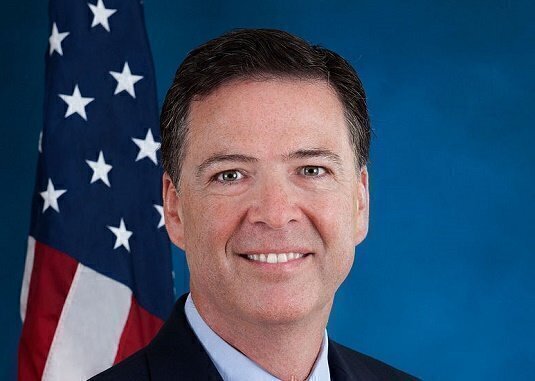The Director of the Federal Bureau of Investigation is one of the most independent officials in the federal government, but are there limits to his powers and can he be removed from office?
 The answer to both those questions is Yes. The recent publicity over actions taken by the current director, James B. Comey, has led some partisan supporters, Democrats and Republicans alike, to criticize Comey. Last year, Democrats were critical of Comey for moves related to candidate Hillary Clinton’s email-usage investigation. And on Monday, Comey testified before a House committee about the FBI’s investigation of alleged links between the Russian government and Trump campaign associates.
The answer to both those questions is Yes. The recent publicity over actions taken by the current director, James B. Comey, has led some partisan supporters, Democrats and Republicans alike, to criticize Comey. Last year, Democrats were critical of Comey for moves related to candidate Hillary Clinton’s email-usage investigation. And on Monday, Comey testified before a House committee about the FBI’s investigation of alleged links between the Russian government and Trump campaign associates.
Comey spoke in guarded terms on Monday and with the consent of the Justice Department, noting that “our practice is not to confirm the existence of ongoing investigations, especially those investigations that involve classified matters, but in unusual circumstances where it is in the public interest, it may be appropriate to do so as Justice Department policies recognize. This is one of those circumstances.”
The FBI operates as part of the Justice Department, and it is known as one of the most independent offices of the executive branch, due to the nature of its work. Its powers are limited by federal law and its agents can “serve warrants and subpoenas issued under the authority of the United States and make arrests without warrant for any offense against the United States committed in their presence, or for any felony cognizable under the laws of the United States if they have reasonable grounds to believe that the person to be arrested has committed or is committing such felony.”
Under the Constitution, the FBI Director is an executive branch official and can be removed if needed. But only in one instance since 1908, after the FBI and its predecessor agency were formed, has a President removed an FBI Director from office.
In July 1993, President Bill Clinton dismissed William Sessions as FBI Director after allegations were made that Sessions used government resources for personal travel and that leadership conflicts existed within the Bureau. Attorney General Janet Reno recommended the dismissal.
Sessions, a Republican, denied the allegations and saw the firing as a partisan act. "Because of the scurrilous attacks on me and my wife of 42 years, it has been decided by others that I can no longer be as forceful as I need to be in leading the FBI and carrying out my responsibilities to the bureau and the nation," Sessions said at the time. "It is because I believe in the principle of an independent FBI that I have refused to voluntarily resign."
Sessions was fired just past the half-way point of a 10-year term as FBI Director. The Bureau has seen 18 people in the Director’s position (or its historic equivalent) since 1908. Its sixth leader, J. Edgar Hoover, headed the agency for nearly 48 years.
Since 1968, a federal law has provided that the FBI Director serves a 10-year term in office. But the Director’s ability to serve a full term depends upon retaining the confidence of the President. And the FBI Director, like all “civil officers of the United States,” can be removed from office if charged with “high crimes and misdemeanors” by the House of Representatives and removed by a two-thirds vote of the Senate, under the Constitution’s Impeachment Clauses.
Removing an FBI Director, either through executive or legislative branch action, is politically risky. Back in 1993, Sessions’ dismissal drew protests from some members of Congress, but the lawmakers took no action to block the appointment of a successor after the firing.
The position of FBI Director, after Hoover, also has its own unofficial version of term limits. Under the 1968 law, unless Congress passes specific new legislation to keep the Director on the job, a new Director is nominated and approved every 10 years. That has happened only once since then, in 2011, when Congress passed a law to allow Robert S. Mueller a second term specifically limited to two years.
And like Supreme Court nominees, an FBI Director is nominated by the President, appears at a Judiciary Committee hearing and gets a full Senate vote.







